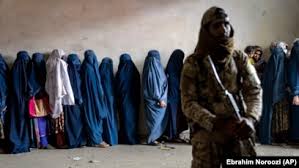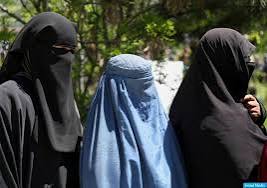Taliban problems related to women’s clothing

Since returning to power in Afghanistan in August 2021, the Taliban have imposed strict rules on women’s clothing. One of the most important regulations of the Taliban in this regard is the requirement to wear a full hijab, including a burqa or chador, which completely covers the face and body of women. These measures have imposed severe restrictions on women’s social and individual freedoms and have caused many reactions inside and outside of Afghanistan.
Problems related to these rules include:
-
Restrictions on education and work: These laws have caused many women to not be able to access universities and workplaces, because the Taliban demand complete gender segregation and full veiling. This has led to the gender gap and the loss of social and economic capabilities of women.
-
Suppression of women’s rights: Many human rights groups and international institutions have criticized the Taliban’s laws on women’s clothing as a suppression of women’s human rights. These laws not only limit the right to choose and personal freedom, but also have negative effects on women’s mental health.
-
Protests and Dissatisfaction: Many Afghan women inside the country and immigrants outside Afghanistan have protested against these regulations. Despite the suppression of protests by the Taliban, the voice of women’s resistance has been widely reflected in the media and social networks.
-
International opposition: The international community, including the United Nations and human rights organizations, have repeatedly pressured the Taliban for these regulations. These oppositions have not only affected the international image of the Taliban, but also imposed economic and political pressures on the Taliban government.
These actions of the Taliban have led to increasing concerns about the future of women’s rights in Afghanistan and the possibility of returning to the previous conditions before the 2000s.
The endless challenge of women in the Taliban regime
Under the rule of the Taliban, Afghan women are facing endless challenges that have affected their daily lives. Since returning to power in 2021, the Taliban have imposed severe restrictions on women’s rights and freedoms, which have profound effects on all aspects of women’s social, economic, educational, and legal lives. The main challenges faced by women in this period are:
-
Educational limitations
One of the most important challenges for women is the ban on access to higher education and secondary education. As of 2021, girls’ schools have been closed in many regions and women have been banned from attending universities. This situation has cut off the hope of many girls and young women to study and progress in society. -
Occupational prohibitions
The Taliban have deprived women of many job opportunities. They are often only allowed to work in certain sectors such as health, and even in these sectors there are many restrictions such as gender segregation and the requirement to wear certain clothes. This situation has led to an increase in women’s unemployment and a decrease in their financial independence. -
social repression
Under the Taliban regime, women face severe restrictions on freedom of movement and social participation. The Taliban have prohibited women from appearing in public places without the accompaniment of Muharram and have also imposed strict rules regarding their clothing and manner of presence in society. This suppression of individual freedoms has severely limited women’s social life and led to their isolation. -
Sexual violence and harassment
Violence against women is still a serious problem in the society under Taliban rule. Reports indicate that women are under constant physical, mental and sexual threats. In addition, women’s legal rights to defend themselves in cases of violence have been severely curtailed, and the Taliban justice system does not provide adequate protection for victims. -
Mental stress and depression
Due to severe social, educational, and occupational restrictions, many women suffer from mental and emotional problems, including depression and anxiety. Social isolation, loss of fundamental rights, and lack of a clear vision for the future have severely affected women’s psychological condition. -
Women’s resistance
Despite all these challenges, Afghan women continue to resist and fight for their rights. Women’s protests in the streets and media and social activities show their continuous efforts to protect their rights. These protests have been suppressed, but still women bravely continue to fight for their rights.
These challenges show that Afghan women face a never-ending struggle to preserve their rights and freedoms under the Taliban regime, and their future remains uncertain and worrisome.
